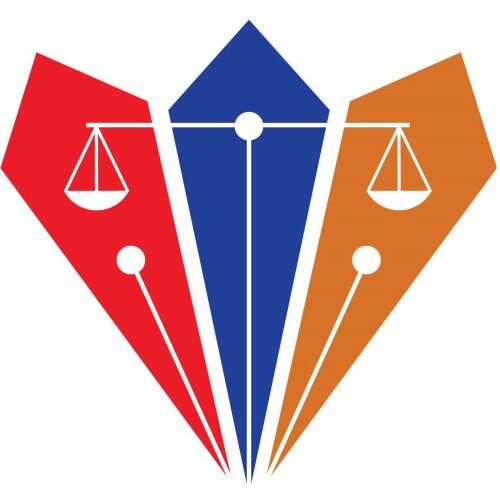Best Art & Cultural Property Law Lawyers in Dar es Salaam
Share your needs with us, get contacted by law firms.
Free. Takes 2 min.
List of the best lawyers in Dar es Salaam, Tanzania
About Art & Cultural Property Law in Dar es Salaam, Tanzania
Art & Cultural Property Law in Dar es Salaam, Tanzania, is a specialized area of legal practice that addresses the creation, protection, sale, transfer, and preservation of art and cultural heritage assets. These laws are designed to protect artworks, historical artifacts, and other cultural properties from theft, illegal export, and other forms of exploitation. Given the rich cultural diversity and historical importance of Tanzania, this legal field plays a crucial role in preserving the country's cultural heritage and maintaining its cultural integrity in a global context.
Why You May Need a Lawyer
There are several situations where individuals or organizations might require legal assistance in Art & Cultural Property Law:
- You are an artist seeking to protect your intellectual property rights.
- You are a collector or art dealer involved in the acquisition or sale of artworks and need to ensure compliance with local and international laws.
- You are involved in cross-border transactions of art pieces and need advice on export/import regulations.
- You own or manage a museum or gallery and face legal challenges related to the display and reproduction of artworks.
- You are involved in archiving or preserving cultural heritage items and require guidance on legal compliance and protection of these assets.
Local Laws Overview
Tanzania, including Dar es Salaam, has specific laws and regulations governing art and cultural property. Key aspects include:
- The Antiquities Act, which provides for the preservation of culturally significant sites and artifacts and regulates the export of cultural property.
- The Copyright and Neighboring Rights Act, which protects the intellectual property rights of artists and creators.
- Various international treaties, such as the UNESCO Convention on the Means of Prohibiting and Preventing the Illicit Import, Export, and Transfer of Ownership of Cultural Property, to which Tanzania is a signatory.
- Regulations governing the licensing of art dealerships, galleries, and museums.
Frequently Asked Questions
What is considered cultural property under Tanzanian law?
Cultural property includes artifacts, artworks, historical sites, and other items of cultural significance recognized under the Antiquities Act and related regulations.
Can I sell Tanzanian art to a buyer overseas?
Yes, but you must comply with both Tanzanian and international laws regarding the exportation of cultural property, ensuring you have the necessary permits and documentation.
How can I protect my artwork from being copied or plagiarized?
Register your work under the Copyright and Neighboring Rights Act to establish your legal rights and protect against unauthorized reproduction or plagiarism.
Are there any government bodies overseeing cultural property in Tanzania?
Yes, departments such as the Division of Antiquities under the Ministry responsible for culture oversee the protection and management of cultural properties.
What should I do if my cultural property is stolen?
Report the theft immediately to local law enforcement and notify cultural property protection agencies to take the necessary action to recover the item.
Is there legal protection for traditional cultural expressions in Tanzania?
Yes, traditional cultural expressions can be protected under intellectual property laws, including copyrights and patents, where applicable.
How do international treaties affect cultural property in Tanzania?
International treaties provide frameworks for cooperation in preventing illegal trade and ensure shared responsibility in preserving cultural heritage globally. Tanzania adheres to these treaties to align its practices with international standards.
Do I need legal help to start an art gallery in Dar es Salaam?
While not mandatory, obtaining legal advice is recommended to navigate the licensing, regulatory, and contractual obligations involved in setting up an art gallery.
Can cultural property be privately owned or must it belong to the state?
Cultural property can be privately owned, but ownership is subject to stringent regulations to ensure its protection and prevent illegal exportation.
Are there any tax considerations related to art and cultural property transactions?
Yes, transactions involving art and cultural property may be subject to taxes and customs duties, and you should consult a legal or financial advisor for guidance on compliance.
Additional Resources
Consider reaching out to the following resources for more information:
- The Division of Antiquities in the Ministry of Natural Resources and Tourism
- The National Museum of Tanzania for expert consultations
- The copyright office within the Business Registration and Licensing Agency (BRELA)
- Legal firms specializing in intellectual property and cultural property law
- NGOs focused on cultural heritage preservation in Tanzania
Next Steps
If you find yourself in need of legal assistance in Art & Cultural Property Law, consider the following steps:
- Identify your specific legal needs or issues related to art or cultural property.
- Research and contact specialized lawyers or law firms with experience in cultural property matters in Dar es Salaam.
- Prepare any relevant documentation or information regarding your legal issue.
- Schedule a consultation to discuss your situation and obtain legal advice tailored to your needs.
- Be proactive in ensuring your cultural assets are protected by staying informed about relevant laws and regulations.
Lawzana helps you find the best lawyers and law firms in Dar es Salaam through a curated and pre-screened list of qualified legal professionals. Our platform offers rankings and detailed profiles of attorneys and law firms, allowing you to compare based on practice areas, including Art & Cultural Property Law, experience, and client feedback.
Each profile includes a description of the firm's areas of practice, client reviews, team members and partners, year of establishment, spoken languages, office locations, contact information, social media presence, and any published articles or resources. Most firms on our platform speak English and are experienced in both local and international legal matters.
Get a quote from top-rated law firms in Dar es Salaam, Tanzania — quickly, securely, and without unnecessary hassle.
Disclaimer:
The information provided on this page is for general informational purposes only and does not constitute legal advice. While we strive to ensure the accuracy and relevance of the content, legal information may change over time, and interpretations of the law can vary. You should always consult with a qualified legal professional for advice specific to your situation.
We disclaim all liability for actions taken or not taken based on the content of this page. If you believe any information is incorrect or outdated, please contact us, and we will review and update it where appropriate.














